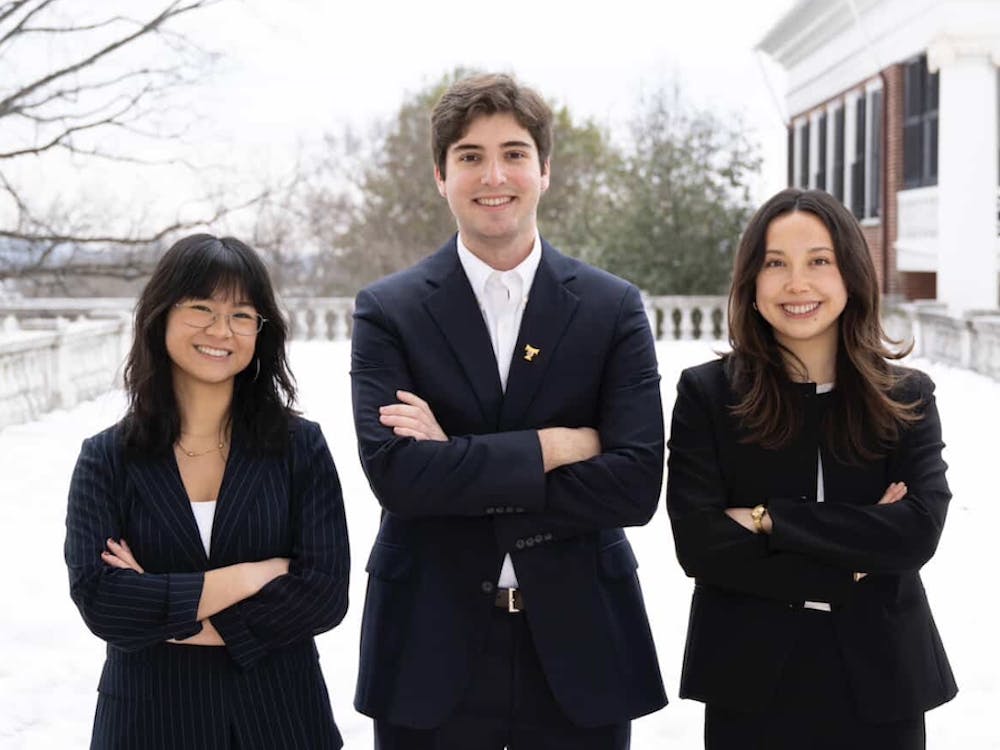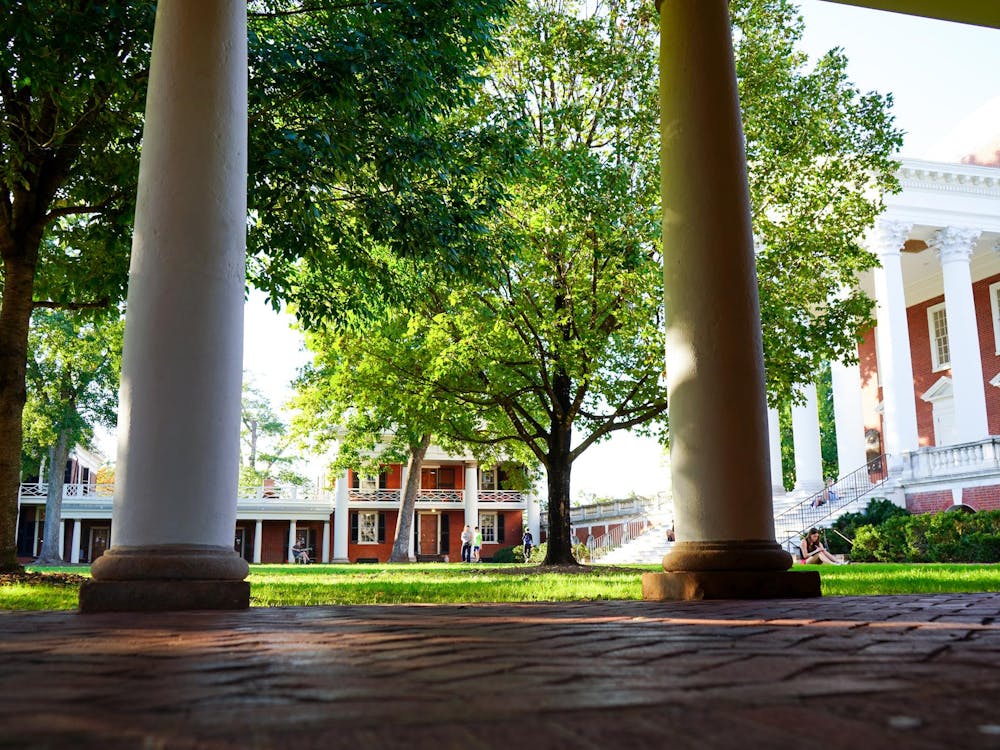Charlottesville City Council convened in City Council chambers for its meeting Monday to discuss climate action and potential amendments to the Community Development Block Grant process as well as hear a presentation on tax relief from School of Law students. This was the first meeting with an in-person component since the COVID-19 pandemic began two years ago.
Council spent the largest portion of the meeting hearing a proposal from City staff to alter the Community Development Block Grant task force, which reviews requests for CDBG grant money and makes recommendations to Council as to how Council should spend CDBG funds.
The proposal would reduce the CDBG task force to an advisory role that would allow City staff to have input in the recommendation of funding. The proposed change to the task force’s role is motivated by the fact that Charlottesville has repeatedly been out of compliance with Housing and Urban Development timeliness standards on CDBG-funded projects, and as it stands City staff cannot provide input in the planning process for CDBG to prevent additional timeliness infractions.
City Grant Coordinator Erin Attik informed councilors that a decision needed to be made in order to allow staff to move forward with ongoing CDBG process plans. Councilor Payne expressed frustration at the insistence on voting immediately upon hearing the issue for the first time.
“Why are we being presented with these changes now, being in a position where we’re told that we’re boxed in and we must make a decision now because otherwise it’ll be too late?” Payne said.
Council decided to hold off on making any decisions on the motion, citing a need for a more in-depth look at the CDBG process.
At the start of the meeting, Law Prof. Andrew Block and third-year Law student Maggie Woodward and second-year Law student Scott Chamberlain presented avenues to provide property tax relief to residents most impacted by tax increases. Last week, in order to fund fiscal year 2023 budget expenditures, Council announced that the real estate property tax will be raised by one cent per $100 dollars of the Real Estate Assessor Office’s estimated value of the property.
Woodard and Chamberlain outlined five short-term proposals and two large-scale proposals for the City to expand its tax relief programs, which provide aid to residents to reduce their tax burdens.
Included in the short-term proposals were suggestions to raise the income limit on receiving tax relief, expand rental relief programs to include non-elderly and non-disabled residents, remove the home price limit for Charlottesville Housing Affordability Program — which provides eligible homeowners with grant money to offset real estate taxes — and institute a property tax deferral program.
The longest-term proposal would change the state constitution to allow tax exemptions for non-elderly and non-disabled Virginia residents. The presenters said the state constitution currently only allows property tax exemptions for disabled and elderly residents.
Councilmember Michael Payne supported Woodward and Chamberlain’s recommendations, saying that despite previous program expansions, fewer people have participated in the City’s tax relief program each year.
“I think these would be particularly important to pursue and my only thought would be how we can do an analysis to ensure that any changes we make are as progressive as possible,” Payne said.
Council then discussed avenues for climate action with Kristel Riddervold, environmental sustainability and facilities development manager, and Susan Elliot, climate protection program manager.
Between 2011 and 2019, the City has seen a 30 percent reduction in greenhouse gas emissions and City staff aim to reduce emissions by 45 percent by 2030 and achieve carbon neutrality by 2050.
Elliott said City staff are currently working on developing climate action plans to reach the target, a major component of which includes working with Charlottesville Area Transit to include a climate addendum on CAT’s ongoing alternative fuel study.
Other potential actions included in the report are increasing energy efficiency in existing buildings, encouraging transportation by walking and biking, diverting organic products from landfills and converting streetlights and traffic signals to LED lights, which save energy.
Council also approved a proposed development on Stribling Avenue which would create 170 units of housing, 15 percent of which will be designated as affordable housing.
The final agenda item was a discussion about the operating procedures for the Police Civilian Oversight Board, which replaces the Police Civilian Review Board and adds expanded functions. As an advisory board, the PCRB did not have the ability to issue subpoenas and is largely reliant on the cooperation of CPD to gather information. The oversight board, however, would be able to issue subpoenas and the executive director of the PCOB would be able to oversee all parts of an internal investigation.
Prior to voting on the operating procedures for the PCOB, the PCRB — which was created in 2018 in response to the 2017 Unite the Right Rally and to address community concerns about transparency and accountability in policing — must close out their one outstanding case before new procedures can be adopted. According to Mayor Lloyd Snook, the PCRB was intended to close this case by March 1 and then the operating procedures would be adopted, formally changing the PCRB to the PCOB.
Mayor Snook shared concerns about the work of the PCRB and their ability to perform their role of providing oversight of CPD especially due to its failure to close out outstanding case.
“When I look at the regulations that come out, it’s clear that you all have been spending a lot more time on the next phase of things before you’ve completed the first phase of things,” Snook said. “Personally I’m thinking that if we indulge you all by discussing the next phase before you’ve finished the first phase we’re never gonna get done with the first phase.”
PCOB Chair Bill Mendez suggested hiring a mediator with the sole responsibility of mediating between police officers and complainants who bring forth accusations of police misconduct. Mediation, Mendez said, aims to give complainants the chance to resolve differences and foster trust between CPD and the community.
Ang Conn called in to public comment at the end of the meeting and criticized this suggestion, saying that suggesting mediation is disrespectful and makes light of police violence.
“It is not a joking matter when people in the community are being harassed daily by the police and then you’re gonna bring up ‘Oh well maybe they could sit down and have a handshake and take some pictures’ — what the hell?” Conn said. “Someone has experienced violence and then you’re gonna say ‘oh let’s go to mediation’ ... that is not funny.”
Council will meet again on May 2 and will hear an amendment to add $394,841 to an existing loan agreement with Piedmont Housing Alliance to develop affordable housing units in Friendship Court.







